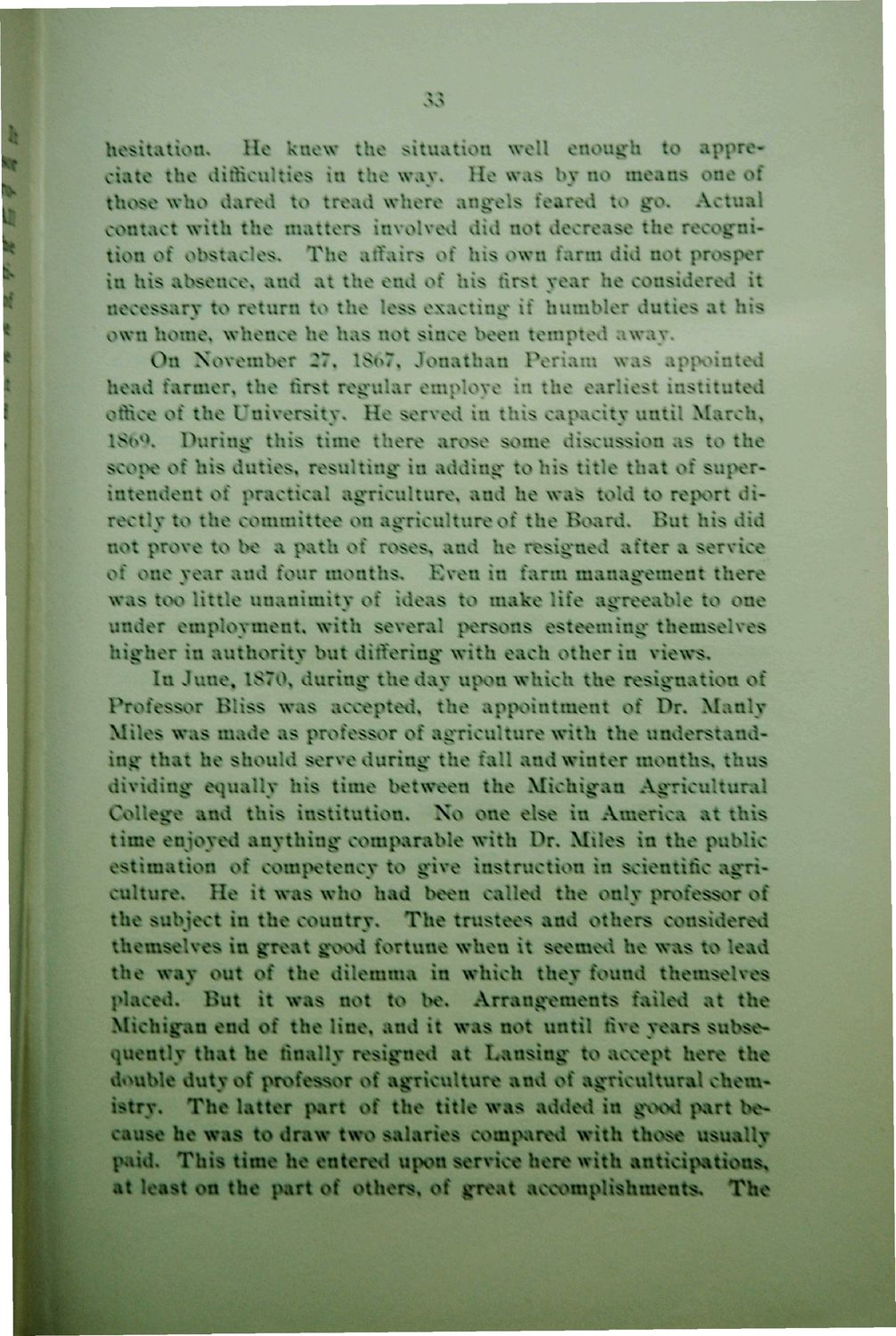| |
| |
Caption: Dedication - Ag Building
This is a reduced-resolution page image for fast online browsing.

EXTRACTED TEXT FROM PAGE:
hesitation. He knew the situation well enough to appreciate the difficulties in the way. He was by no means one of those who dared to tread where angels feared to go* Actual contact with the matters involved did not decrease the recognition of obstacles. The affairs of his own farm did not prosper in his absence, and at the end of his first year he considered it necessary to return to the less exacting- if humbler duties at his own home, whence he has not since been tempted away. On November 27* 1S67, Jonathan Periam was appointed head farmer, the first regular employe in the earliest instituted office of the University* He served in this capacity until March. 1869* During* this time there arose some discussion as to the scope of his duties, resulting* in adding to his title that of superintendent of practical agriculture, and he \va^ told to report directly to the committee on agriculture of the Board. But his did not prove to be a path of roses, and he resigned after a service of one year and four months* Even in farm management there was too little unanimity of ideas to make life agreeable to one under employment, with several persons esteeming* themselves higher in authority but differing with each other in views. In June, 1870, daring- the day upon which the resignation of Professor Bliss was accepted, the appointment of Dr. Manly Miles was made as professor of agriculture with the understanding that he should serve during the fall and winter months, thus dividing equally his time between the Michigan Agricultural College and this institution* No one else in America a t this t i n e enjoyed anything comparable with Dr* Miles in the public estimation of competency to give instruction in scientific agriculture. He it was who had been called the only professor of the subject in the country* The trustees and others considered themselves in great good fortune when it seemed he was to lead the way out of the dilemma in which they found themselves placed* But it was not to be* Arrangements failed at the Michigan end of the line, and it was not until five years subsequently that he finally resigned at Lansing to accept here the double duty of professor of agriculture and of agricultural chemistry* The latter part of the title was added in good part because he was to draw two salaries compared with those usually paid* This time he entered upon service here with anticipations* at least on the part of others, of ( t e a t accomplishments* T h e
| |